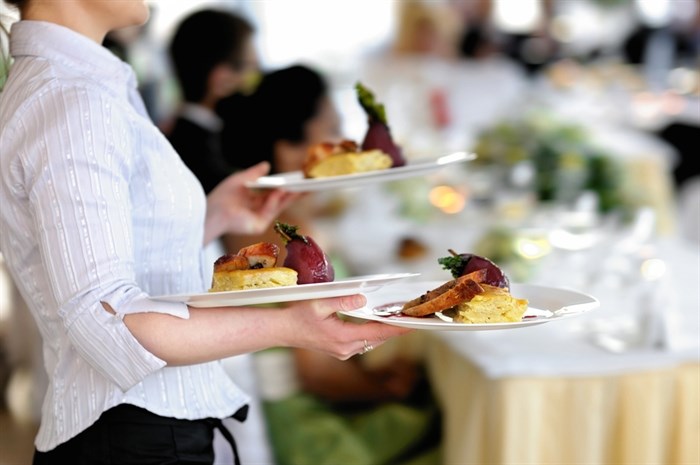
Image Credit: Shutterstock
June 26, 2020 - 7:00 AM
Within the first days of reopening, line-ups could often be seen outside The Kal, a popular Vernon pub. A new patio in the parking lot seemed busy, and to the casual passerby, the historic pub seemed like it was almost business as usual.
One month later and the pub has closed for a week.
"As a result of staffing shortages caused by current economic conditions," reads a message on the pub's Facebook page. No one from the Kal returned calls or emails, but the presumption among many of its patrons posting on social media, puts the blame on the Canada Emergency Response Benefit, known as CERB, a $500 a week benefit for anyone who lost their job due to COVID-19.
Whether that was a factor at The Kal or not, it's something every restaurant has to contend with.
"CERB is definitely an issue," B.C. Restaurant and Foodservices Association president Ian Tostenson told iNFOnews.ca. "We're hearing things like, 'Why would I come back to work? I'm making a couple of thousand bucks a month.'"
Tostenson says its anecdotal evidence, but he's hearing it from people across the food and beverage industry.
In contrast, roughly 100,000 of the province's 190,000 food and beverage workers are unemployed, he said.
And the food and beverage industry isn't the only place that's hearing it.
Senior policy analyst for the Canadian Federation of Independent Business Muriel Protzer said one-third of their members report they're having staffing issues.
Protzer said not all staffing issues relate directly to CERB and while it's not possible to quantify the exact number, the CERB benefit is having an effect on small businesses.
"Unfortunately the really problematic issue that we're seeing is employees not wanting to come back to work because they prefer to collect the CERB benefit and simply not have to work," Protzer said.
However, not everyone collecting the $2,000 a month benefit doesn't want to return to work.
"My staff is willing," Boarding House Cafe owner Marilyn Courtenay said, but she simply doesn't have the hours to give them.
Across the road from the Kal, Marten Brewery and Pub general manager Clint Bialas said 75 per cent of staff were happy to return when they reopened. The other 25 per cent gave different reasons for not wanting to return to work. Some legitimate, others perhaps questionable.
With minimal wage for those working at businesses that serve liquor at $13.95 per hour - 65 cents less than the regular $14.60 minimum wage - collecting $2,000 a month for not working only leaves those collecting CERB slightly worse off. And that's only if restaurant and bar workers get full-time hours, something rare in an industry heavily reliant on casual part-time labour.
David Scarlatescu owns and runs Vernon's Fig Bistro and employs two full-time staff. Prior to the pandemic, he had four full-time staff. Scarlatescu said it's a conscious decision to hire full-time employees.
"I can see why larger restaurants would be having so much trouble because they run off so many part-time employees," he said. "When you're not guaranteeing hours it's difficult for someone to say, yeah I want to commit to coming back to work. The life of a server outside of a pandemic is already very volatile... it's a volatile industry."
United Food and Commercial Workers Union Local 1518 represents thousands of mostly grocery store workers. The jobs pay similar wages to those working in the restaurant industry.
"The majority of our members want to go back to work," United Food and Commercial Workers Union Local 1518 managing director Parm Kahlon said. "No one is saying we don't want to go back to work because of CERB."
Kahlon said union members, whether full or part-time, have a guaranteed number of hours per week, while people working in the gig economy or jobs which don't guarantee hours don't have that stability.
Kahlon said the union members' attitudes towards going back to work no doubt came from knowing they were going back to stable employment.
Tostenson from the restaurant association, said the restaurant industry may need to offer full-time hours and perks to get some people back into work.
"I think this is going to be transitional for the industry where it may not rely so much on part-time (staff) in the future, and it may have to rely on more full-time career (workers)," Tostenson said. "In Europe for example, restaurant jobs are careers not just a path through."
At The Marten Pub, Bialas says bars and restaurants can't operate in the same way they did before COVID-19.
"We changed our model, we can do it with less," he said. "The restaurant model is not sustainable at the current labour rates and food costs."
Bialas said the pub has eight fewer front of house staff and has adopted a common brewpub model of bar service only. Staff are pooling tips and comradery among staff is high.
While the number of people who don't want to work and stay home collecting CERB is very difficult to know, the benefit is due to expire at the beginning of September.
"Something's going to have to change because I think at some point CERB is going to run out and then we are either going to have continued mass unemployment or people clamouring to get a job," Tostenson said.
iNFOnews.ca was unable to contact The Kal Pub.
To contact a reporter for this story, email Ben Bulmer or call (250) 309-5230 or email the editor. You can also submit photos, videos or news tips to the newsroom and be entered to win a monthly prize draw.
We welcome your comments and opinions on our stories but play nice. We won't censor or delete comments unless they contain off-topic statements or links, unnecessary vulgarity, false facts, spam or obviously fake profiles. If you have any concerns about what you see in comments, email the editor in the link above.
News from © iNFOnews, 2020